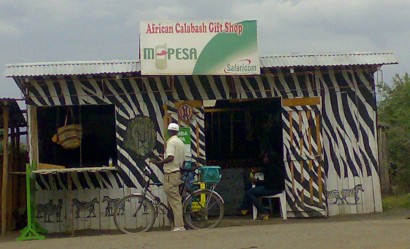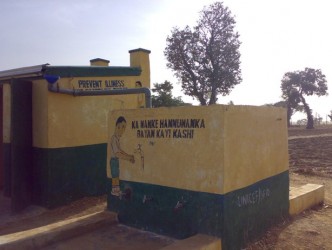Every year, like kids on a school trip to the zoo, DFID lets its education and health advisers all meet up to take stock and share their experiences over the past 12 months. Last week we gathered in Nairobi to swap notes and learn from one another, grateful (after a lot of economising) that the event wasn't dropped altoghether as we all look to save money where we can.
We considered how to keep human development high on the agenda and safeguard our programmes from the impact of the global recession and competing priorities for funds and political attention during a UK election year. Climate Change is a good example: carbon pricing and technology adaptation are hugely important, but what about education and family planning for African girls (and boys)? If Lagos does expand with an additional 10 million souls, many are going to end up in flood prone slums: smaller, smarter families have to part of the long term solution.

Some topics on strategies, ‘cash on delivery’ and aid effectiveness can get a little dry, but learning what works: (e.g. activity based learning in Tamil Nadu) or what challenges some of our staff have had to overcome, really adds spice. My unfortunate colleague in Kenya turned up for his first day in the office, just as a fraud was quickly being investigated in the country's education sector. Then the health team in Zambia recounted their newly formed expertise in forensic audit, gained whilst trying to track donor budget support funds. Meanwhile, our despairing adviser in DRC displayed pictures of huge bundles of cash for teacher salaries leaving Kinshaha in the back of mini-buses, for want of a better system to pay the staff. ‘How about mobile phone e-cash transfers?’ came the response from the M-PESA savvy Kenyans.

One of the retreat's highlights however came from an encounter with IDS’s Prof. Robert Chambers who by chance was in the hotel and readily agreed to lecture us pen-pushers on the somewhat dirty subject of Community Led Total Sanitation (CLTS). Prof. Chambers, a champion of grassroots initiatives such as Participatory Poverty Appraisals, is firmly in the Development ‘Hall of Fame’ and age has not diminished his drive and intellectual interest. ‘Did we know in the Nairobi slums you could get clean water from an automatic solar powered pump via a mobile e-payment?’ he enthused to a slightly shell shocked audience.

Burning with energy, the CLTS approach that is scaling up across Africa was described. Communities walk together in their neighbourhood seeing the reality of open defecation, while facilitators make the point that with no sanitation in effect they are surrounded by 'shit’. Unprompted, a local leader ignites and resolves to take action and (without donor support) a participatory programme of pit latrine construction starts that can deliver dramatic health improvements. It’s thought that tropical enteropathy (damaged gut lining from constant exposure to harmful bacteria) is a major factor in child malnourishment and inhibits growth. Being ODF (Open Defecation Free) compliant has become a badge of honour for many villages.
In Nigeria the CLTS approach is about to be strengthened through a new DFID financed sanitation programme in conjunction with UNICEF and I returned ‘really getting’ what it's about. I’m looking forward to the day when local Hausa leaders adopt this approach in Northern Nigeria, anyone who has gone for walk around the colourful but often smelly markets will know why!

Recent Comments